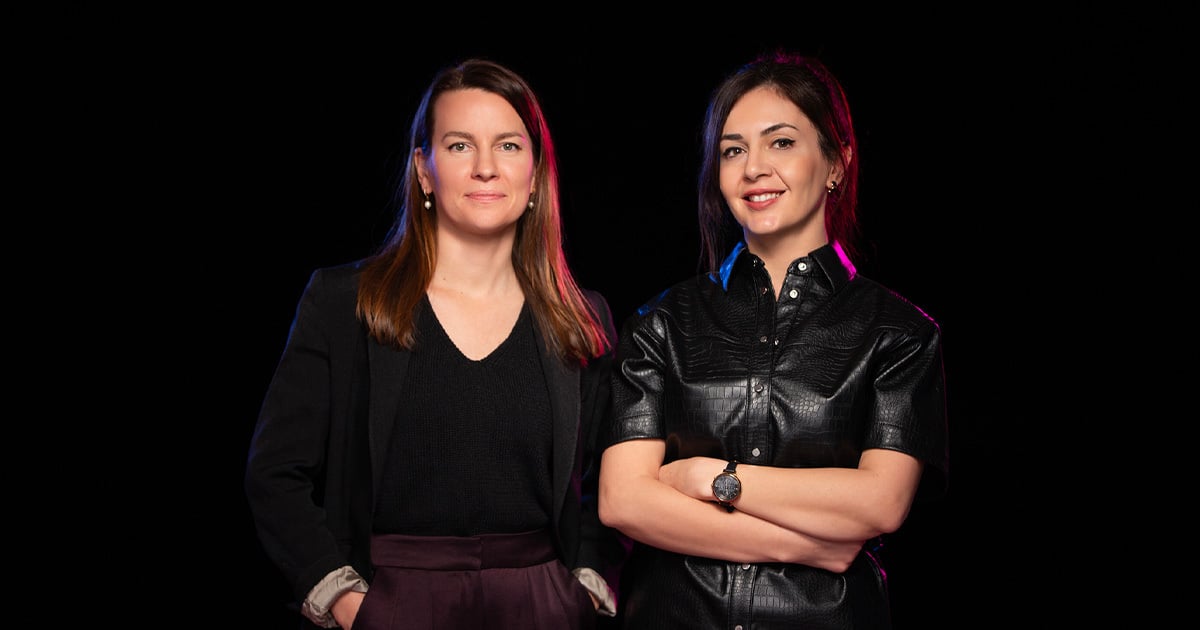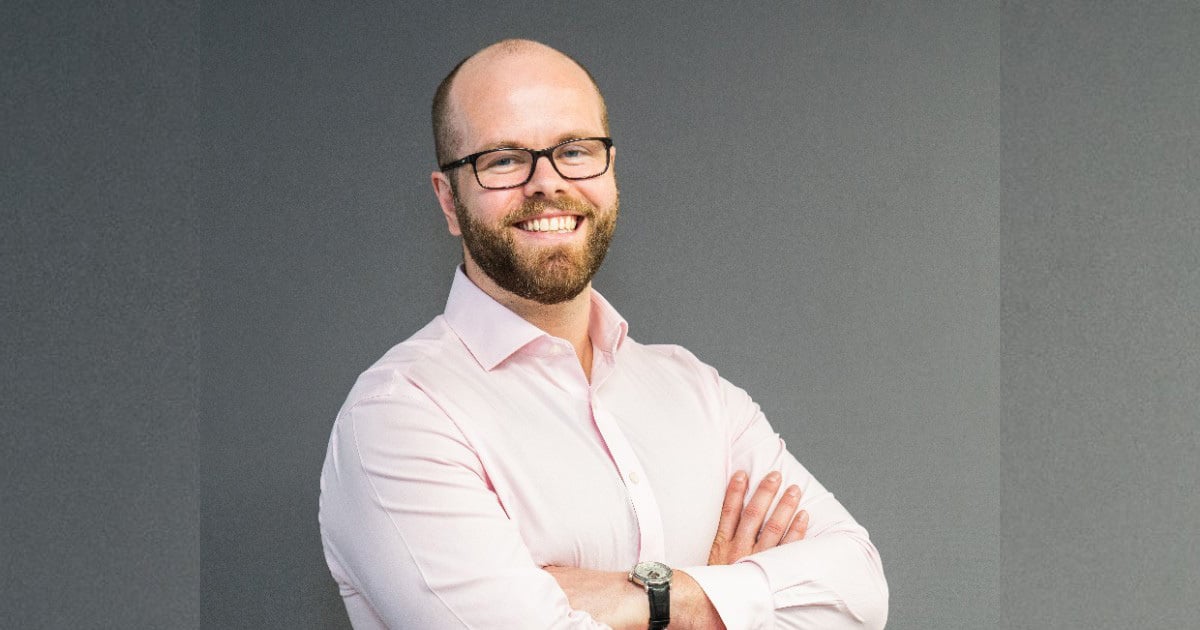- PreSeed Now
- Posts
- Investors wish these startups existed
Investors wish these startups existed
Find out what's on our pre-seed startup wishlist...

Now that summer holiday season is truly upon us, startups and investors are mostly keeping their heads down for a few weeks. As is now traditional at PreSeed Now, we’re changing up our content a little this month to reflect this.
Today, we’re taking inspiration from Y Combinator’s famous lists of startups they want to invest in, to find out what UK-focused early-stage investors are looking for.
Read on to see what’s on the wish lists of investors and startup support programmes these days…
But first, some updates from the UK pre-seed world:
NeuWave Technologies, which we covered very early in its journey last year, has raised a £550,000 pre-seed round from EHE Ventures’ AI Growth Fund, Insurtech Gateway, and QVentures.
Deep tech and life science VC firm Cambridge Innovation Capital says it is committing at least £100 million to invest in spinouts from the University of Cambridge, as part of its £250 million Fund III.
Lancashire’s Fhunded programme has announced that its investor community has invested over £21 million into early-stage startups in the county so far. The programme recently hit its second anniversary.
…and Fhunded’s angel programme has contributed to a “six-figure” round for PetProov, a Chorley-based startup tackling fraud in the pet sector.
– Martin
Tired of compliance drama?
That enterprise deal? They just asked for SOC 2. Traditional path: 6 months, $100K.
With Delve: 15 hours. Our AI handles the busywork, and our experts help you close faster.
Lovable did it in 20 hours.
11x unlocked $2.3M.
Book a demo—code BEEHIV1K gets you $1,000 off.
The startup wishlist: What do early-stage investors want founders to build?

Y Combinator’s regular Requests for Startups are always an interesting read, listing the ideas the venerable accelerator programme’s partners would like to see founders tackling.
But what startups would the UK’s early-stage investors and support programmes like to see emerging?
We asked a bunch of them over the past few days, and here’s what they told us.
If you’re an investor, it’s an eye on what everyone else is doing. If you’re a founder, it’s perhaps some inspiration for your next big idea…
Playfair
Chris Smith, managing partner at Playfair, told us he’s interested in:
Hardware and difficult-to-build stuff - “things like verticalised robotics and novel manufacturing processes where tech meets proper, manual work.”
Regulated industries - “regulatory approval risks are now, if you get it right, moats and buyer credibility that shrinks your competitor pool.”
Companies using AI “…where if you scratched the word 'AI' from the deck you've still got a clear problem & solution with a 10-year+ vision.”
Read our interview with Chris about the state of pre-seed VC:
___________
Cambridge Future Tech
James Hayward, COO at Cambridge Future Tech, which helps spin promising tech from university research out into commercially-minded startups, told us:
“Right now, we’re particularly focused on pre-incorporation spinouts in areas where the science is pushing up against urgent real-world needs.
“In defence and security, we’re seeing live projects in cybersecurity, biosecurity, and AI assurance with serious technical depth, strong geopolitical tailwinds, and growing investor interest.
“Future of compute is also a core focus. There’s a lot of noise around AI, but we’re looking for infrastructure-level ideas - the ones that can cut through and scale in a market dominated by global incumbents.”
“These are the kinds of companies we’re looking to back: research-led, technically credible, and built with long-term commercial relevance from the very start.”
Read our interview with Cambridge Future Tech’s CEO Owen Thompson:
___________
Concept Ventures
Oliver Kicks, partner at Concept Ventures, told us:
“At Concept Ventures, we'd love to see more original consumer startups - founders with growth, UA and GTM experience. AI offers unbounded possibilities to rethink consumer experiences across the stack and very few people are going after these opportunities currently."
___________
Conception X
Nick Slater, head coach at Conception X, the support programme that helps turn PhD research into deep tech startups (i.e., it’s NOT an investor, but we’re still interested in what they have to say), would love to see more of the following:
Quantum-inspired startups:
“We’re seeing more and more companies exploring quantum-inspired algorithms. Essentially, this means developing algorithms using methodologies that borrow principles from quantum mechanics, but applying them to classical hardware — CPUs and GPUs.
“We don't really know when quantum computers will go live – some say in two to three years, others say it could take a decade. But what's really interesting about these quantum-inspired companies is that they’re building software designed to transition to quantum hardware when it becomes available.
“To me, that’s really exciting. They aren’t waiting around – they’re thinking long-term. We've had a few of them on the programme – QMatter, MaterAI and others – and we’re always looking to support more.”
AI :
“One of the big successes for us has been Holistic AI – founded by Emre Kazim and Adriano Koshiyama at UCL – which has built an end-to-end solution for AI governance.
“There’s definitely a growing sense that, whether or not AI gets regulated by different jurisdictions, AI safety is going to be really important – to protect customers, businesses’ reputations and also get access to quality data. Teams building in this area believe that if they develop a good solution, customers will turn to them to help make their AI systems safer.
“In such a rapidly expanding space – and with so many negative opinion pieces and court cases – this could be really interesting. But it’s also risky. It could be that companies ignore it until they get in trouble. So it's either going to be something necessary, or just a nice-to-have that doesn't get picked up. It could go either way.”
World models:
“We’re seeing some really interesting developments in robotics, especially with the latest breakthroughs in AI world models.
“If you take a robot, give it a task and simulate how it performs that task – if the simulation matches the real world closely enough then it should be able to carry it out successfully. But let’s say the room is humid or you're outdoors and there’s foliage on the ground – you may get to a situation where it can’t achieve it in the correct way.
“That’s where world models come in. They let you build much more accurate simulations, with variables like temperature, sand, snow, so the robot can learn to adapt in a way that’s dynamic and human-like.
“It’s a space that we think is going to be quite interesting – and it’s not just limited to robotics. These models can also be used to simulate biotech systems or create general worlds with rules for gaming applications.”
Read our interview with Conception X CEO Riam Kanso:
___________
G-Force
Finn Peacocke, from the investment team at G-Force, told us the climate tech-focused VC firm is currently most interested in these fields:
Forever chemicals:
Membranes for filtering out PFAS from gas, air and water
Innovative business models incorporating hardware and software to improve PFAS screening
Treatment hardware to break the carbon-fluorine (C-F) bond
Data centre cooling:
New hardware to drastically reduce the energy required to cool data centres
Machine learning software to improve data centre cooling protocols
Robotics:
Robotics for energy asset installations
Autonomous vehicle software for asset monitoring and maintenance
Dual-use robots for defence and climate monitoring
___________
SVV
George Mensah, principal at SVV (formerly known as Sure Valley Ventures) would like to see more…
AI-native authentication systems, particularly around voice. “The speed at which bad actors can leverage voice cloning through AI generate tools creates security risks which need addressing, particularly around user authentication.”
Robotics and physical AI. “There is huge upside for founders building foundational technology in physical AI (robotics and autonomous vehicle). We have seen some incredibly gifted technical founders build solutions around simulation and training, but we would love to see more engineers come to market with bold and creative ideas that would enable physical AI to really scale.”
___________
Ada Ventures
Matt Penneycard, partner at Ada Ventures says he’s especially interested in:
Startups that are innovating LLMs: exploring alternative systems of AI that enable them to build more ‘intelligent’, or complementary, tech such as neuro-symbolic systems.
“As part of this work, I’m also keen to meet more teams using AI to transform robotics. AI is allowing us to shift away from simple task automation towards developing more intelligent systems that can actually ‘think’ for themselves. This new wave of robots and AVs will require AI systems, with broader and deeper forms of intelligence if we’re to hit operational safety standards for the human interaction we all suspect is coming.”
“I think the consumer AI market is also wide open. While most investment to date has focused on B2B tech, startups building game-changing AI which delivers genuine impact for consumers have a huge opportunity to make their mark.”
BlueTech: “Our oceans remain a vast, untapped resource, offering enormous potential for innovation.”
“We’ve recently adopted a new investment focus at Ada called Bio-Infrastructure. That means we're looking to fund solutions which sit at the intersection of healthcare, deep-tech and AI.”
Read our interview with Ada Ventures co-founder Check Warner:
___________
Empirical Ventures
Johnathan Matlock, co-founder of Empirical Ventures, says he’s looking for:
Next-gen nuclear and advanced energy systems: “The Great British Nuclear initiative and £385 million Advanced Nuclear Fund highlight national commitment to clean, scalable baseload power. Startups working on components for SMRs, advanced reactor simulation, or materials for extreme environments are creating essential infrastructure for the energy transition.”
AI infrastructure: “As AI systems grow more computationally and energy-intensive, the supporting infrastructure must evolve. We’re backing startups developing solutions across the stack - such as novel semiconductors, photonic compute, cooling systems, and model compression tools - that reduce the operational cost and energy footprint of AI. This is fast becoming a bottleneck that deep tech can solve.”
Advanced materials for extreme environments: “A new generation of materials is unlocking performance in domains where legacy metals and polymers break down — think hypersonics, nuclear fusion, next-gen semiconductors, and deep space. High-entropy alloys, nanostructured ceramics, conductive nanowires, and metamaterials are pushing the limits of strength, conductivity, and thermal stability. Meanwhile, AI-native platforms are collapsing discovery timelines, designing materials atom-by-atom to meet specs that were previously impossible. This intersection of computation, chemistry, and manufacturing is quietly becoming foundational to deep tech.”
Enabling the In-Orbit Economy: “Falling launch costs and increased government backing (e.g., UK Space Agency’s £50 million IOSM fund) mean the commercial space economy is shifting its focus from getting to orbit to operating and adding value in orbit. We’re especially excited about enabling technologies which are critical to ensuring the long-term safety, sustainability, and commercial viability of orbital operations.”
Next-gen battery materials and lithium-metal systems: “Conventional lithium-ion batteries are approaching their practical limits (~300 Wh/kg). The next leap - novel technologies for lithium-metal anodes, solid-state interfaces, and interface engineering - is essential to breaking this performance barrier to power energy-dense electric aviation, long-range drones, and robotics. We’re backing materials and diagnostic innovations that solve key challenges like dendrite suppression, thermal stability, and cycling degradation.”
Read our interview with Johnathan about rethinking the university spinout process:
___________
Carbon13
Puja Balachander, director of Venture Launchpad at Carbon13 told us:
“There’s been a lot of talk about the fact that it’s a bad time for climate tech. The reality is that where there’s a challenge there’s an opportunity.
“There are endless solutions that are yet to be created, and believe it or not, not all of them in AI.
“Tougher environments produce better products, and it’s about time for this. I’d like to see more of: Solutions around the tech stack for geothermal, intersections of resource security and climate (local critical mineral supply etc.), anything around blue carbon, and carbon-free cooling.”
Read our interview with Carbon13’s Sara Jones:
___________
Exceptional Ventures
Paolo Pio, co-founder and general partner at Exceptional Ventures, told us he has his eye on an emerging rush of healthtech investment.
"Our view is that the current boom in healthtech is being driven by three concurrent forces: an increasingly ageing population, scientific advances in understanding the human body [and] the breakdown of public healthcare systems.
"We’re also seeing rapid acceleration in the ability to analyse health data at massive scale, AI-driven diagnostics and risk prediction, breakthrough therapeutics (from GLP-1s to Alzheimer’s drugs), earlier and cheaper detection tools, [and] progress toward truly personalised care.”
Pio says Exceptional Ventures is currently looking for startups across three pillars:
Stay Well – prevention, sleep, exercise, nutrition, mental health, wellness habits
Detect Early – AI diagnostics, biomarker tracking to catch illness before it’s too late
Treat Smarter – better access to healthcare, digital and personalised care
___________
Aroundtown
Angie Mahtaney, principal at property company Aroundtown, which also invests in proptech, tells us:
“The UK is uniquely positioned to build on its success and reputation. It has access to the brightest minds, government subsidies and incredible academic capabilities.
“As someone who specialises in proptech, there are so many solutions I can go into that I’d love to see on the market. Despite there being consistent progress, the real estate market continues to be ripe for disruption.
“There’s a lot of work to be done in energy - particularly hardware-based renewable energy solutions.
“In addition, we’d love to see more solutions that are leveraging technology to improve utilisation of commercial real estate.”
___________
Are you an early-stage investor interested in the UK who is looking for something we’ve not included? Let us know.
Forwarded this email? Not already a subscriber? Fix that now and get future issues straight to your inbox 👇






